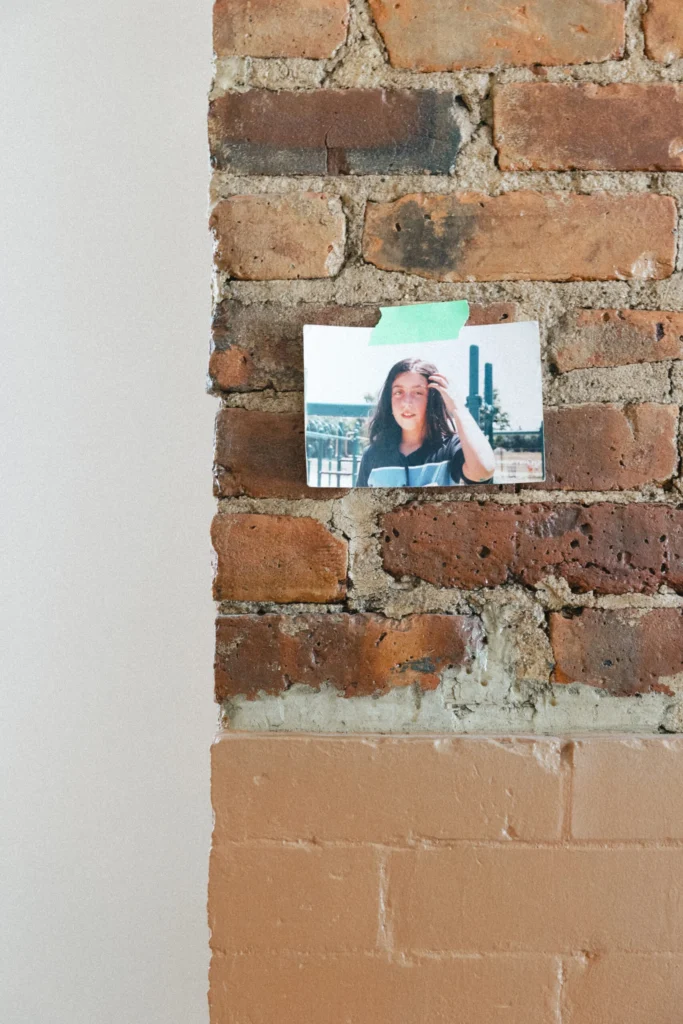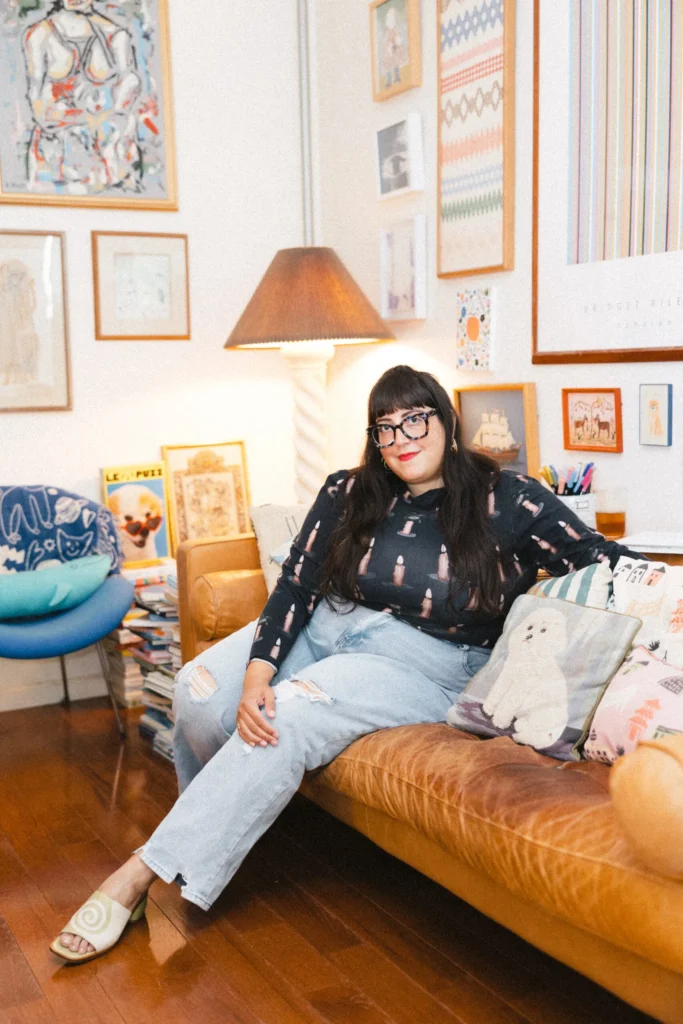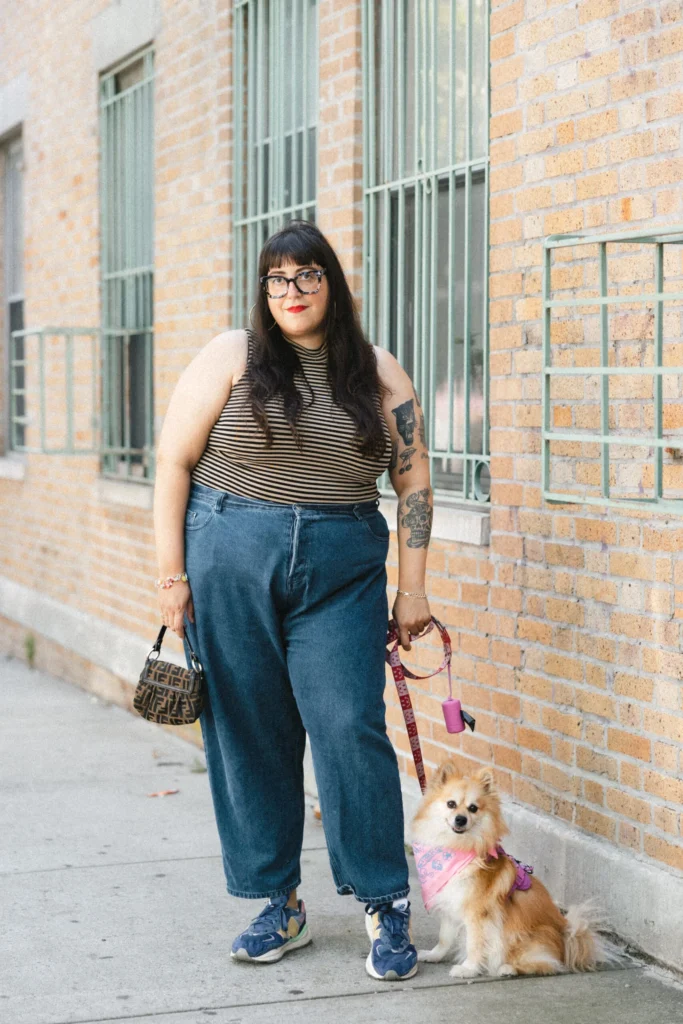Author and illustrator Jordan Sondler is based in Brooklyn. He creates comics and adorable pet images that highlight significant life events such as losing a parent or standing up for oneself. She said, “Easy and comfortable but speaks loudly,” when asked to characterise her ideal outfit. Not to mention, no zippers. Jordan offers five looks here.

“My mother inspired me to love fashion.” My sister and I used to be dressed in matching outfits, twirly dresses, ribbons and patterned jeans whenever our mom clothed us as children. It was extremely Northeastern in the ’90s, and I would still wear all of those clothes today.

I’ve been overweight for a very long time—since I was 15—and I didn’t enjoy dressing up for a while in my adolescence and early adulthood. I was embarrassed when my mother took me to Lane Bryant since I thought it was an establishment for the elderly. It was really awkward to have to shop at Nordstrom for loafers because I also had size 11 feet. In college, I would thrift clothes that were either too big or too little. I was essentially forced to wear whatever boring clothes fit me.

“When smaller designers like Wray entered the market and began offering inclusive sizing, that’s when I really started to find my own style seven years ago. Aidy Bryant told me about Wray and how much she loved the brand’s quirky clothing. As a devoted client, I sincerely hope they succeed. It’s alarming how many companies have gone back to simply selling a small range of sizes these days.
Jordan Sondler

“When it comes to hair, I’m game if I can style Jordan Sondler under 60 seconds. I adore a high pony with an amusing scrunchie or clip. I merely use an eyebrow pencil and lipstick for makeup. I used to wear a lot more, but the quarantine forced me to give up things I disliked, like wearing heels and makeup or putting on biking shorts.

I was the smallest I had ever been in my adult life when I ended a relationship that lasted seven years ago. I felt that I should be able to achieve the world’s ideal body, thus I was actively trying to lose weight at the moment. I became aware of how much I detested my physique after our breakup. That’s what set me on the path to body neutrality and learning to live at peace with my body. When I began making fat friends at gatherings hosted by Emma Zack, following fat influencers like Virgie Tovar, Jessica Torres, and Marielle Elizabeth TerHart, and reading books written by fat people like Body Talk, my entire life opened up.

I recall calling myself and someone I didn’t know well who I was eating lunch with “fat,” and then they called me the same thing. It was so startling because, up until then, I had always felt like the adjective “fat” was being used against me, even if they intended it in a neutral way. I was able to process a lot of emotions thanks to the book You Have The Right To Remain Fat. I feel like a completely different person now than I did when I was at my greatest point, which is now.

“This is Ramona; she saved my life seven years ago.” Jordan Sondler stubborn nature is similar to mine, therefore having to raise her is a curse. She acts in ways that I would, such as digging in her heels when we are moving in a direction she is not comfortable with. I feel like I’m getting upset at myself every time I get mad with her. I adore her, though. She thrives on being stopped by strangers in public. She will weep if she walks outside and there are no dogs or people nearby.

“I stopped worrying that someone wouldn’t be able to tell from my profile that I am overweight and happy, and they would assume that I was tricking them into going out with me,” I said on my dating site. I no longer have to worry about future dates being uncertain about who they’ll wind up on a date with because I am attractive, humorous, successful, and intriguing. I go on a lot of dates!

“When I was fifteen, I lost my father to alcoholism. My friends Anna Toonk, Bridget Badore, and I were talking about how we felt about losing our fathers during the pandemic. We eventually had the idea, “Why don’t we just gather people and have a conversation about this?” That is how the Dead Parent Club came to be, an online community made up of people I have never met, including those who cared for their parents after they passed away, those who lost their parents to addiction, and those whose parents were killed. We have a monthly online meeting where we discuss issues related to grieving the loss of a parent, such as resolving family conflicts and establishing death-anniversary customs. Even though I never believed I would enjoy them, grieving groups have transformed me.I’m very happy that those who have lost parents and are looking for a sense of community may now access more resources, such as Anderson Cooper’s podcast All There Is and the Instagram account Option B.


